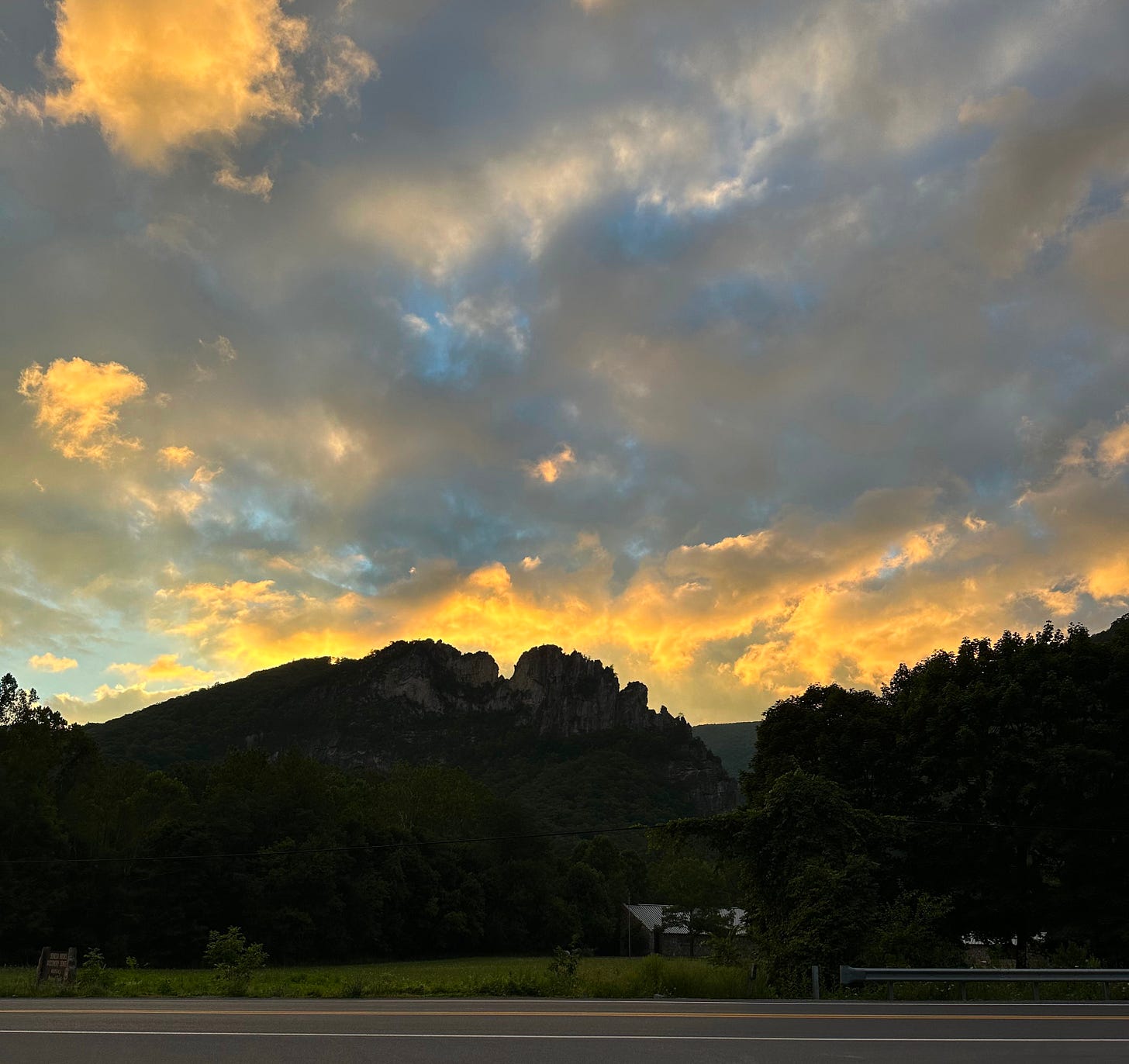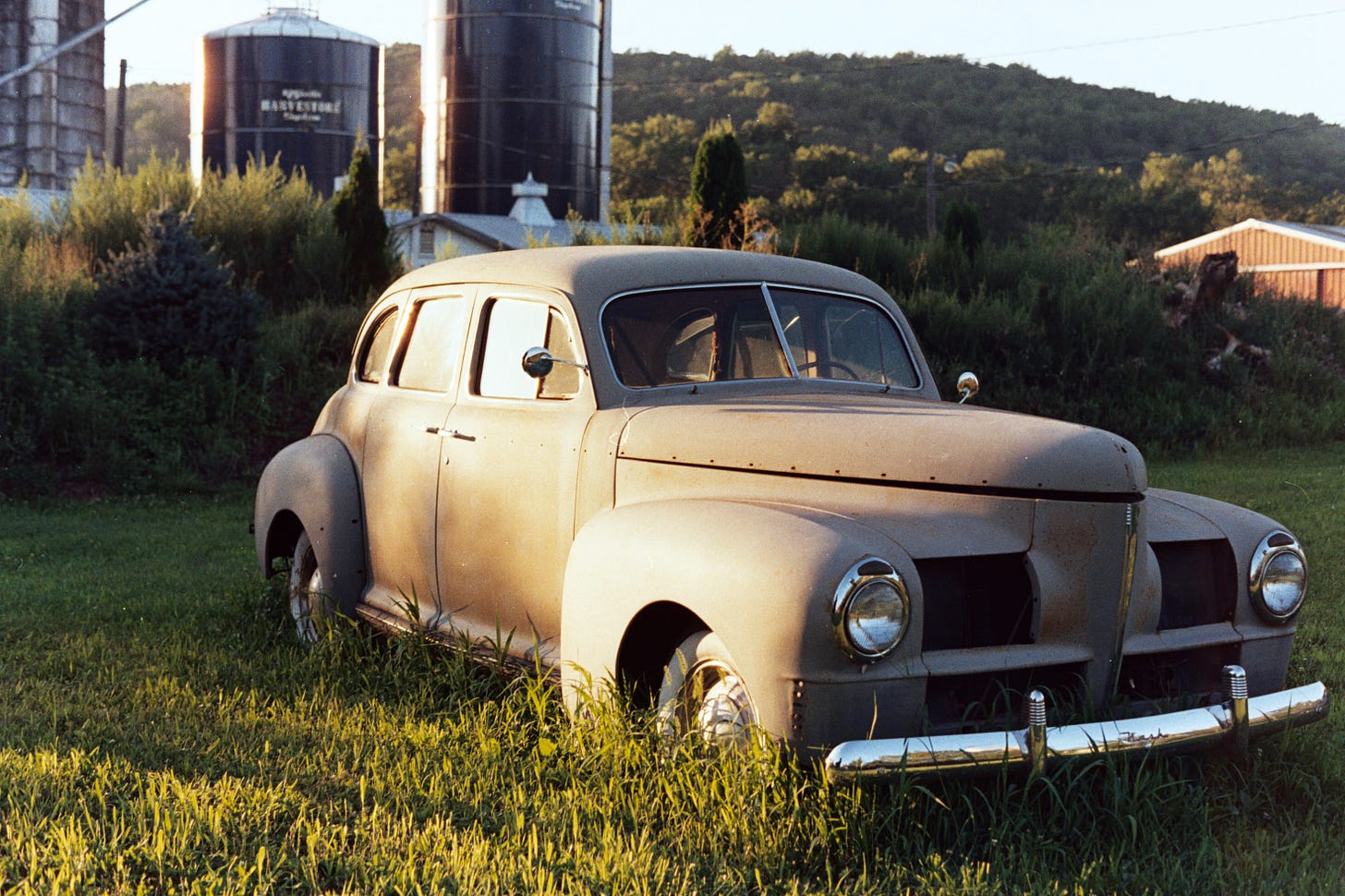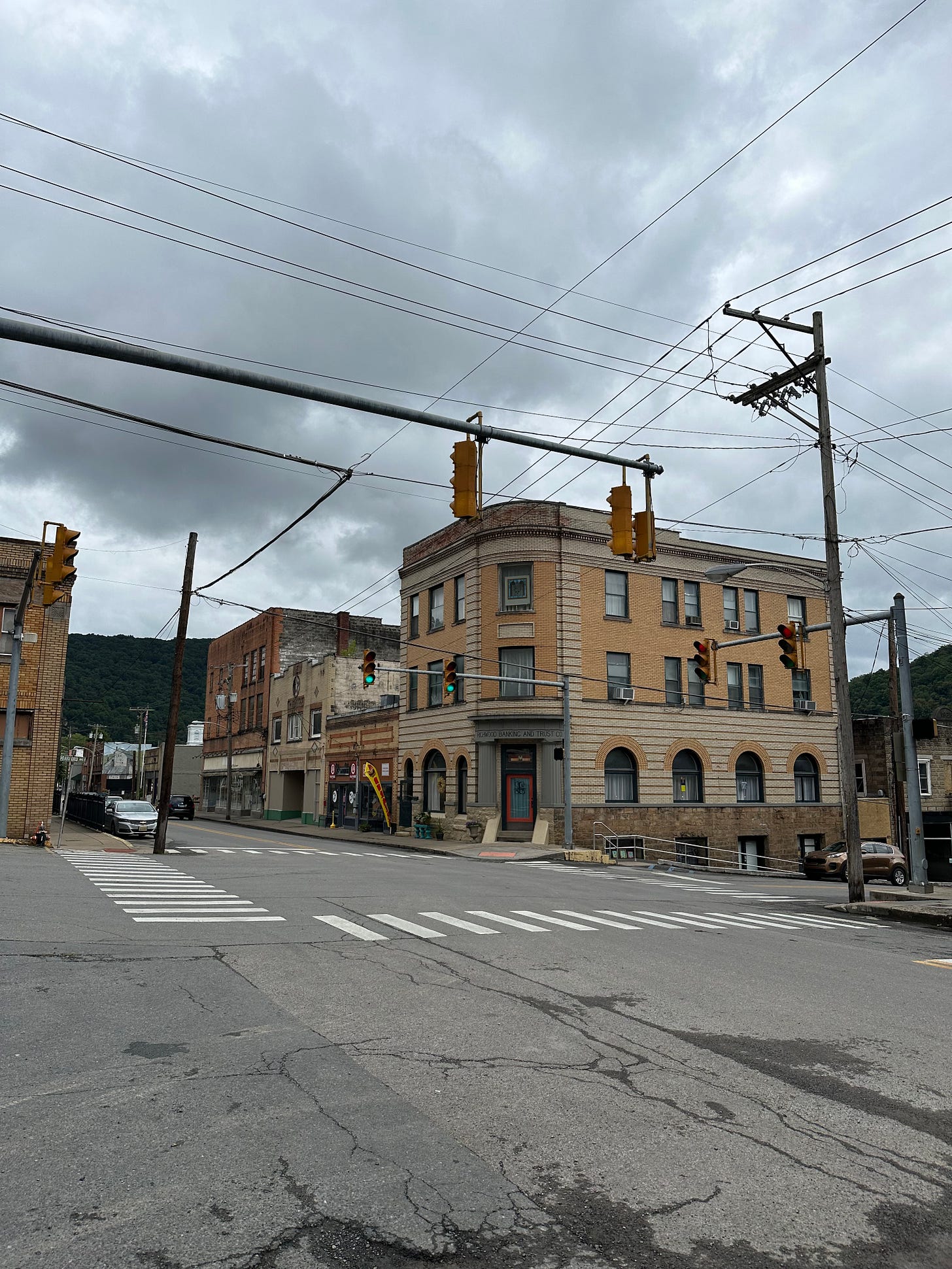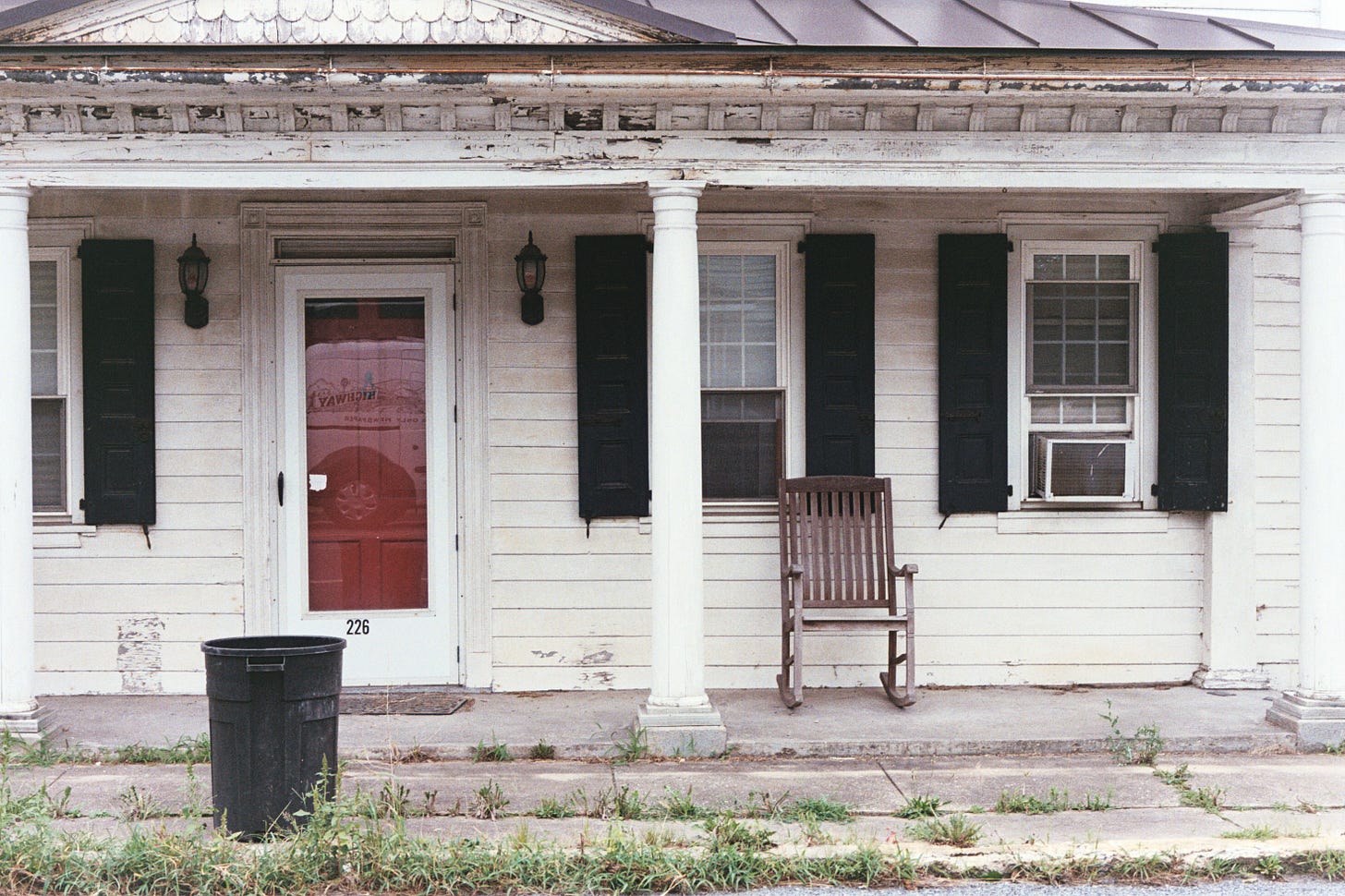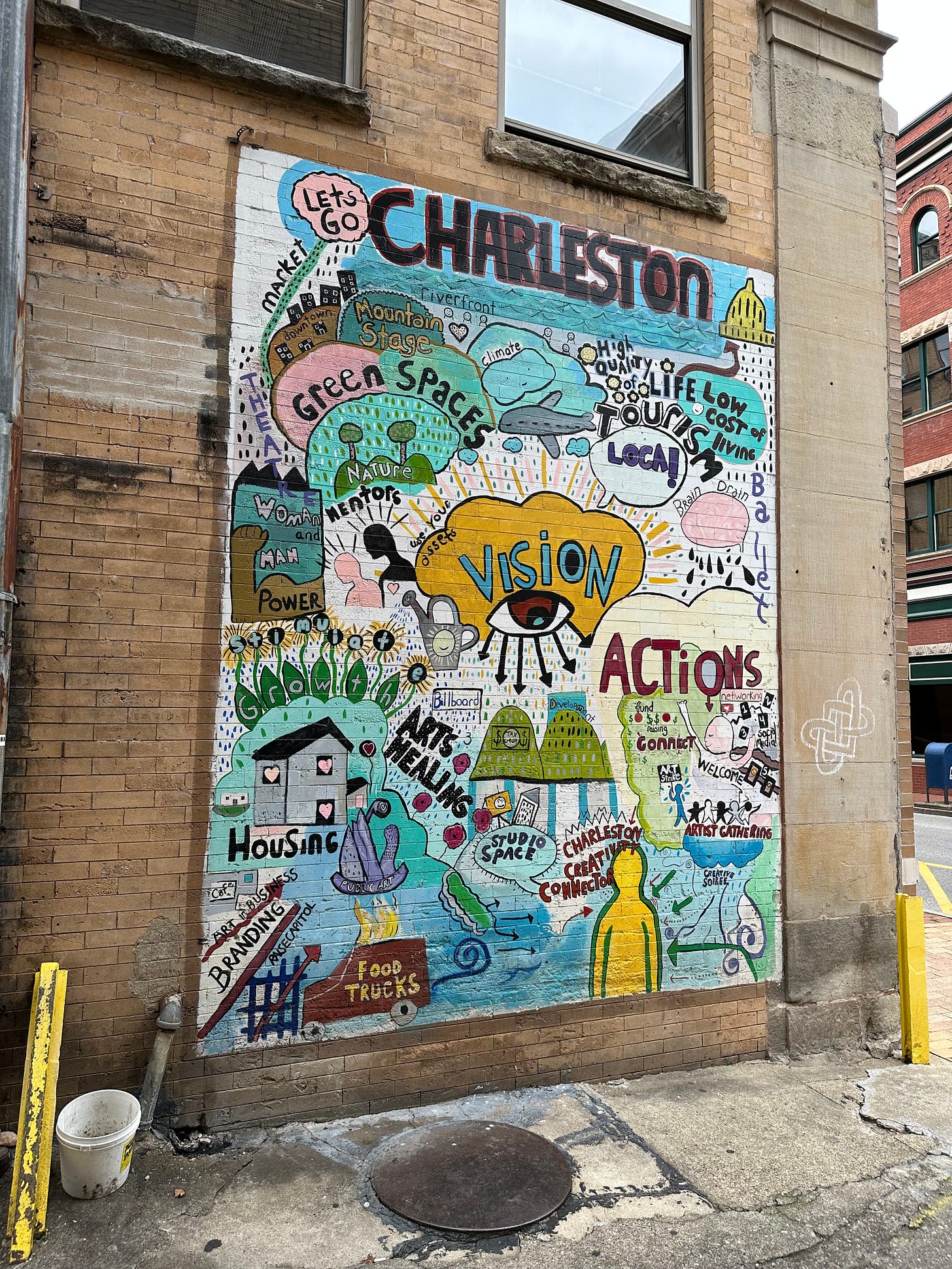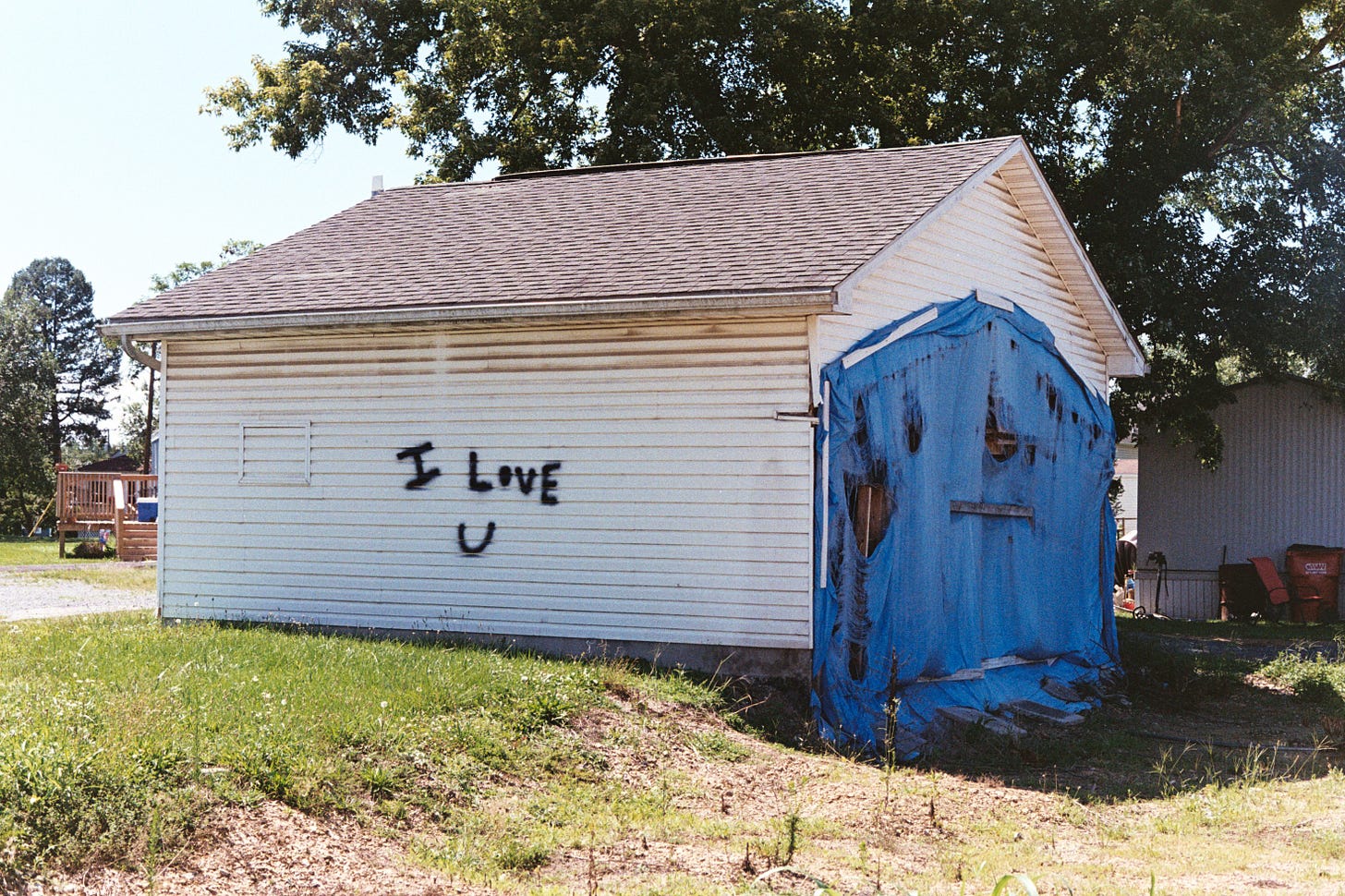Wednesday, August 16th
Yokum’s, it turns out, is a popular stop-over for semi-truck drivers, and I was finally irrevocably awaken by a Coca-Cola delivery truck backing in at 6:15 the next morning. He was early, so he idled loudly until the store opened over an hour later. But the sun was rising and its rays crushed against the back of the Seneca Rocks, bursting into a halo that died on the clouds above.
I drove back to the public access spot I had visited yesterday—it was further than I realized—and there I made coffee and smoked a cigarette, hoping it would not produce any immediate demand for evacuation.
I waded into the river with my gear and lost a fly in the first few casts. I tied on a fresh, green caddis and continued, casting into the current reliefs behind larger stones. I had only seen a few crawdads and minnows the day before but trusted that trout had long evolved to be particularly invisible.
The meaty ball of my shoulder was only just sore from the previous day’s practice, and I tried again and again. Thinking a different fly might improve my chances, I replaced the green caddies with one slightly larger and fanning brown—the first new fly used without having lost its predecessor. Six left.
No change was made in my circumstances, and I hoped that I was simply making good casts into a depleted August trout river and not conjuring bad omens. Days earlier, during the guided meditation in Manhattan, we were asked to give our wiser, older self a gift; I’d given mine a fish. But, invisible or nonexistent, that fish would not be from this river
My decisions would have to become sharper, more detailed, more attuned to the trivialities of fly-caught trout before the offering could be made. Though my feelings, my anticipation of success in this new and independent venture and my fear of its failure, had already knit themselves to the notion and expectation of a successful cast.
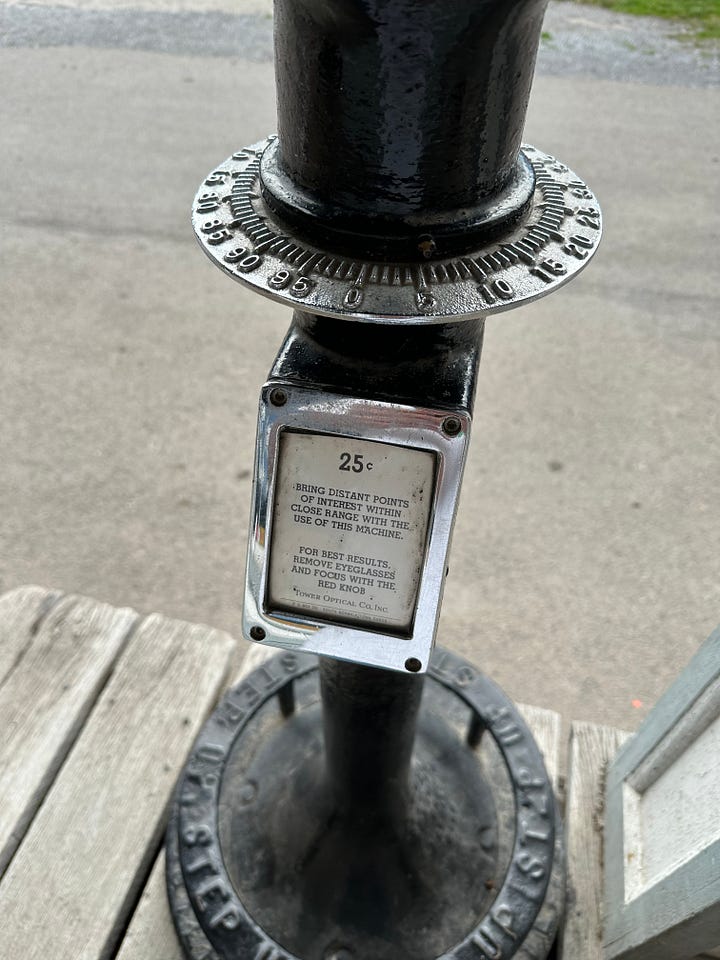
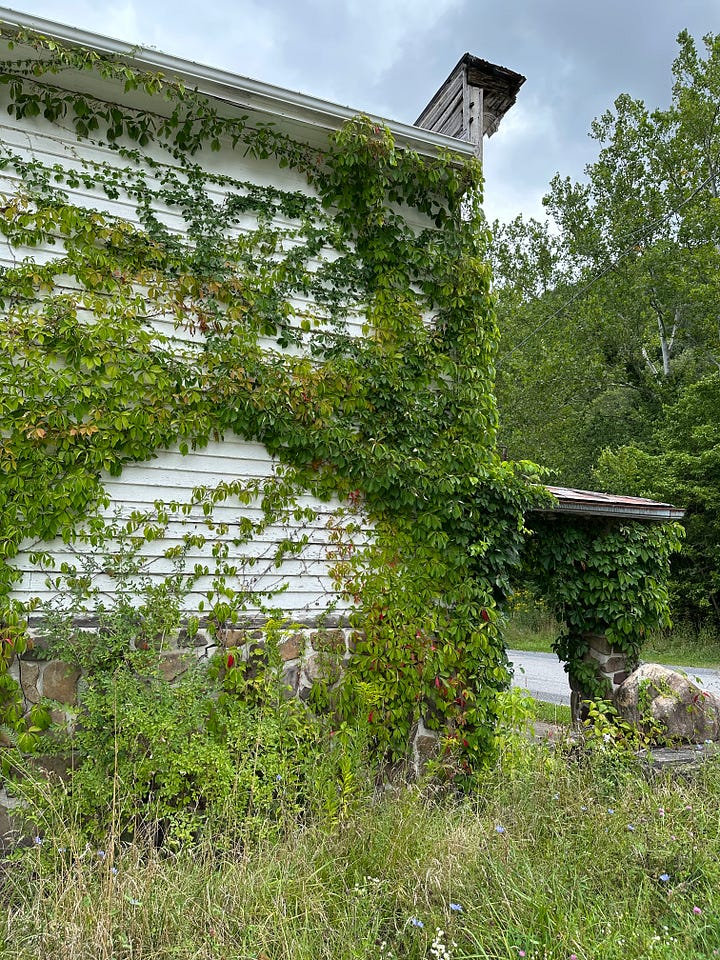
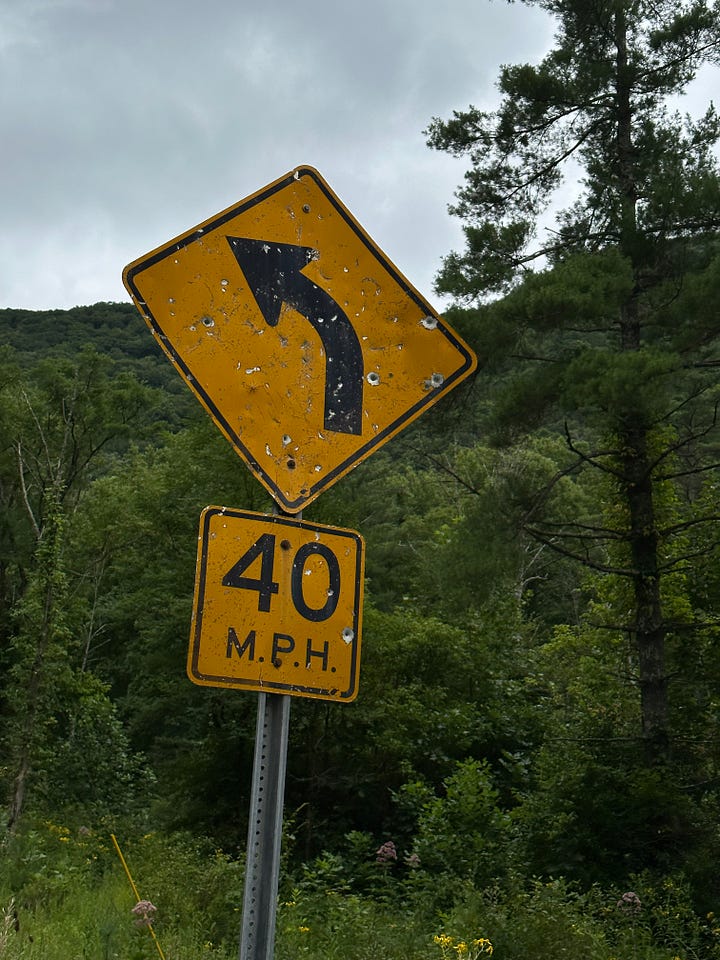
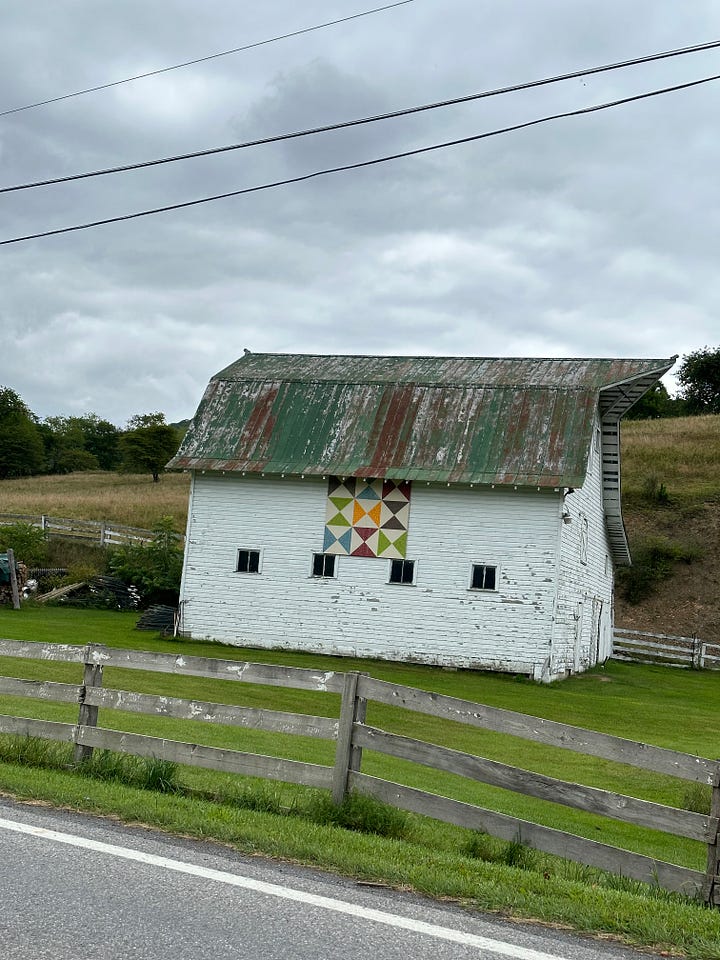
I came back to the car and finished my coffee, smoked another cigarette, and relieved myself by the bank of the river before washing my face and ass.
Passing Yokum’s again, I stopped at the Old Harper’s Country Store to pick up some water and something to eat. The two elderly women saw the decal on my van, and one of them asked of the other, “So what’s America’s only newspaper?” When I went to pay for my peanut butter crackers and the recommended, local-made pepperoni roll, the asking woman directed her question to me. I explained and offered them a free stack—I’m still doing the job, at least when its doing requires little effort.
When I came back from the van with their requested eight copies, they thanked me, and I pet Beau, the dog who one had joked was actually the owner; he stunk, but he was a good dog. Outside, I put a quarter in the viewfinder which read “BRING DISTANT POINTS OF INTEREST WITHIN CLOSE RANGE” and scoured the Seneca Rocks.
There was a shorter route to Lexington—a destination I chose arbitrarily—but I took the longer way that would wind through the mountains of Monangahela National Forest. More barns, many with the same square, quilt-evoking artwork of the sort I had seen in western North Carolina. Later on, in Greenbank, I found its source, or at least one of its many copycats.
Another river near the park presented itself but not for fishing. I tested the temperature with my sandaled feet, took pictures, and left. Up the mountain, which was somewhat oddly downstream, I did the same.
Pulling into Marlinton, I parked across from a red-white-and-blue painted shop and took photos of a boarded-up building that appeared to be the town’s oldest. I tried to get gas before leaving, but the pumps were all occupied. I had just under 90 miles of fuel left and thought there was time. Luckily, I was right, but I couldn’t have known and became anxious as the number of miles left in the tank ticked lower and lower while the lonely mountain road went on and on.
The way was wet from the scraping of mountain clouds on high road. And then there was Richwood, which meant gas, and a bit more.
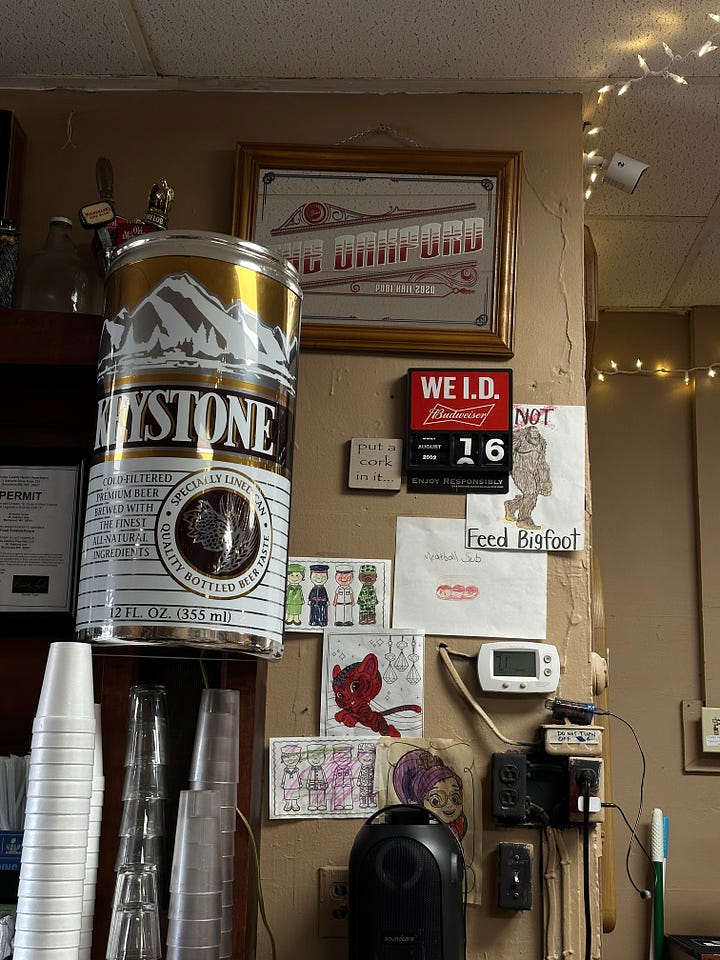
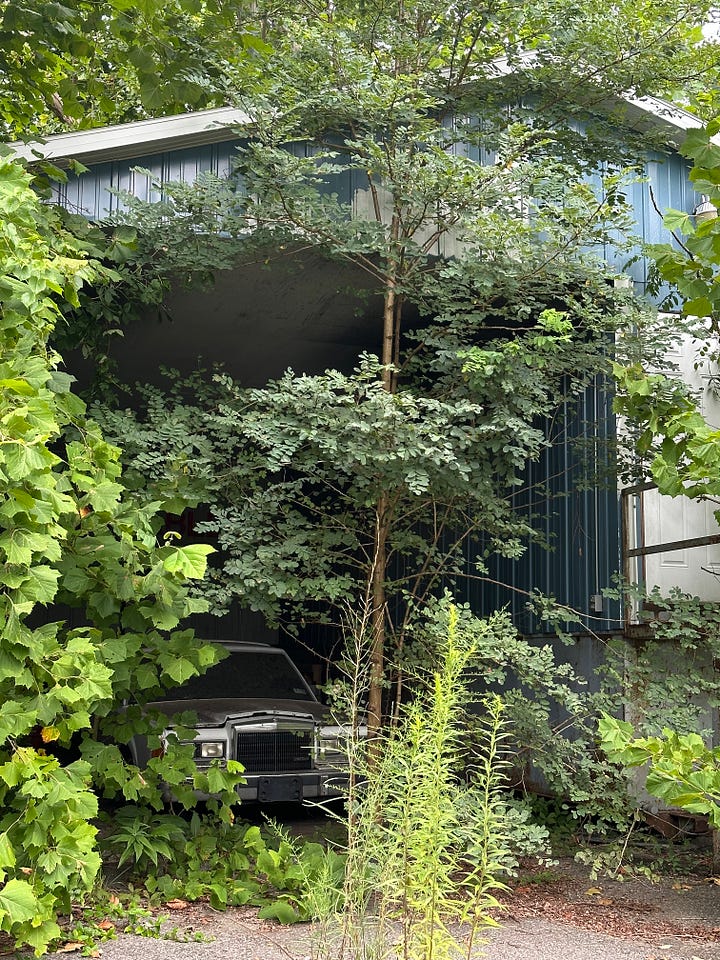
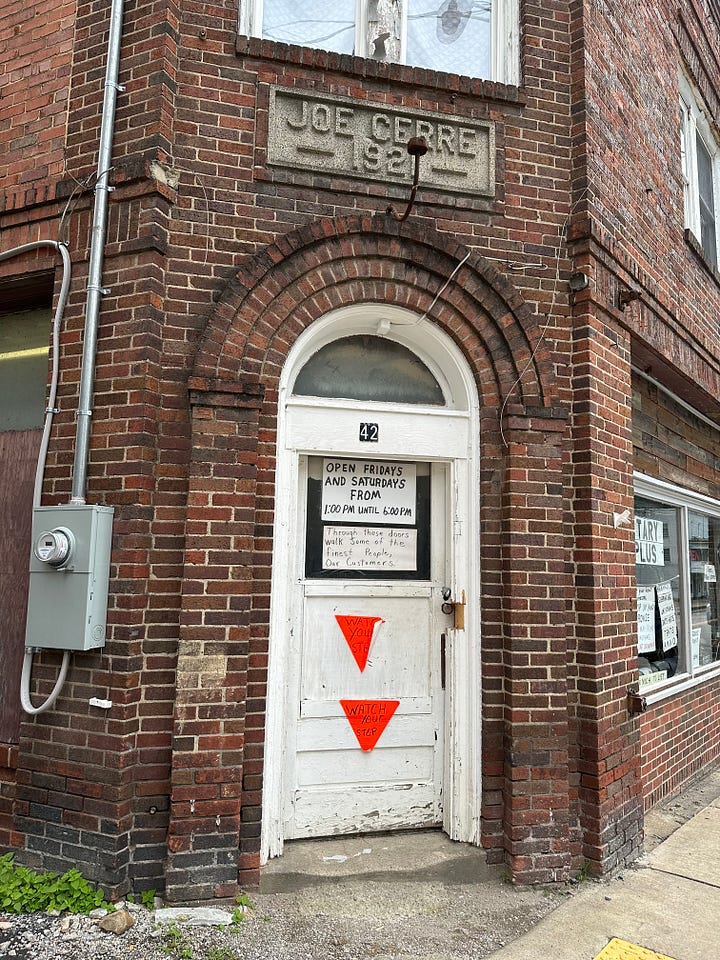
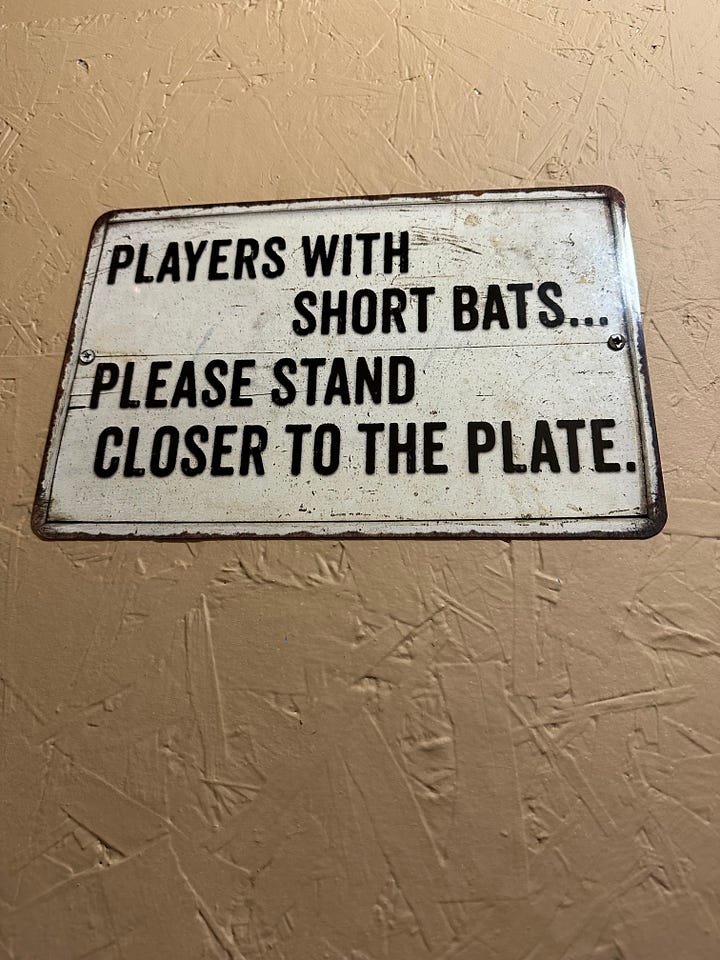
It was immediately apparent that nowhere else like Richwood exists. While the almost-broken pump screeched out my thirteen gallons of gas—$3.79 per—I wandered to the corner, peering down the only streets you could peer down. Earlier, I’d seen a hand-painted, wooden advert for the Sawmill Tavern coming into town, and there it was, visible from the station. Still waiting, I put on my tennis shoes. “Well, you went comfortable,” said a woman, also waiting for slow gas, about the sandals I was taking off.
Pulling up after a brief tour around town, I suspected Sawmill was closed. It was. So instead, I went to Oakford, the bar a few doors down where the space above the door attested to its being open since 1935—different owners, always a bar.
It was a place of accumulated poor taste, ancient memorabilia preserved under drop-ceilings and above wood floors a patchwork of different stains. The pool tables were tucked against the walls and covered, but the kitchen was open and the beer “ice-cold.” The bartender flirted with conversation at first. “Alan Jackson was good for about 30 minutes,” she said, before putting on a classic rock playlist with three ZZ Top songs.
When I went out for a smoke, she saw that I smoked the same cigarettes, and we talked prices and brands. Once my BLT was served, she asked, “So what brings you to Richwood?” I had been waiting for someone to notice. “Quitting a job,” I replied mysteriously.
She’d only been in Richwood for three years herself—I’d noticed the absence of an accent—had moved with a high school boyfriend from Anaheim with whom she’d reunited at the beginning of the pandemic. She’d never been on a plane before but loved to roadtrip. The boyfriend, from Texas, designed websites from home (the apartment above the bar) and had a dead father and an aunt in Summersville, a far less picturesque town a half-hour away.
Her claim to liking small town life was delivered only slightly more convincingly than other women who, like her, come to find themselves somewhere good but not at all where they’d ever dreamt of being. “Everyone knows everything here, and quickly,” she said with suspicious delight. The mail man didn’t deliver to her apartment upstairs if the bar was open—two birds, one mailman.
Richwood is known—by Richwoodians, mostly—for having a ramps festival. A week dedicated to the foraging, processing, and consumption of the allium. I’d never had them; she’d come to love them. “There used to be a rule that you couldn’t go to school if you ate ramps; you couldn’t go to the dentist for three days if you’d eaten ramps,” she said of the odorous green. “They didn’t drink much water back then,” I said, suggesting such customs were an issue of concentration.
As the name advertises, Richwood is a lumber town. Was. Is. I thought this aloud to her, and she mentioned the town had once made—as if, and most certainly, by collective effort—wooden clothespins. “Like the Shakers,” I asked. “Funny you mention it, I think the Cherry River Festival”—the other annual event—“was once called The Shaker something-something Festival.”
(I had just read the chapter of Blue Highways where Least-Heat Moon mentions the Shakers and their wooden clothespins. I was still on his trail, though in reverse—another sign.)
A man walked in and she greeted him flippantly. “You want a bottle or a can; I’ve got cans now,” she dictated more than asked. He took a bottle. A regular, the regular.
I finished my second beer. She anticipated my departure and closed my tab. We said our thanks for the conversation, she wished me good luck on my trip, and I asked her name. Heidi.
Out of Richwood, the mountains began to diminish. I had hoped for a chance at evening fly fishing before Charleston, but as the towns leveled out, the river grew wider, warmer, and public road access evaporated. The quaint and unincorporated became the less quaint and even less incorporated. Trailer home-dotted hollers bled into the remnants of old river towns now crushed against the Kanawha that was once their livelihood by a highway that balloons into interstate. Dodging this into Charleston, the crisp mountain air vanished.
At a bar I chose because it shared my name, I had the garden salad—iceberg lettuce—and wings. The day’s games were on. An overbuilt man walked in wearing a shirt that read SHOW ME THAT BUTTHOLE. The local uncloseted queen, who was on his third tab of the night, spoke at a volume everyone could hear and said things like “decalotage forward,” and “I wouldn’t let her in my house, but I would drink with her.”
As I finished a third beer, the bartender mentioned to her friend that someone they knew, someone older, was declining. “He looks like he’s wearing boxing gloves,” she said of his swollen hands. He was apparently ready to die, “tired,” and wanting to “go see his wife.” The bartender was doing her best to keep him from a painful death. This had come up at the end of a casual discussion of personal ailments, of small problems becoming bigger ones.
Charleston is a place where liberal city culture has just started to roost, where people who’d never read the New York Times have started to, where older women have new tattoos and others still shop at Talbots; where cheerful murals peek from behind alleys next to axe-throwing businesses; where white men wear tucked-in polos and look just a bit sloppy in their humidified navy-over-beige church boy outfits, rolled up long sleeves go with knee-high Easter Egg shorts; where vests are a year-round item, pastel-colored hair is no longer a rare sight, and where Coke Zero sells better than Classic. A place caught in between and heading both directions.
But it’s also a Southern place, an obese one, where people work hard to become comfortable, so hard and so comfortable that they end up needing their health insurance.




